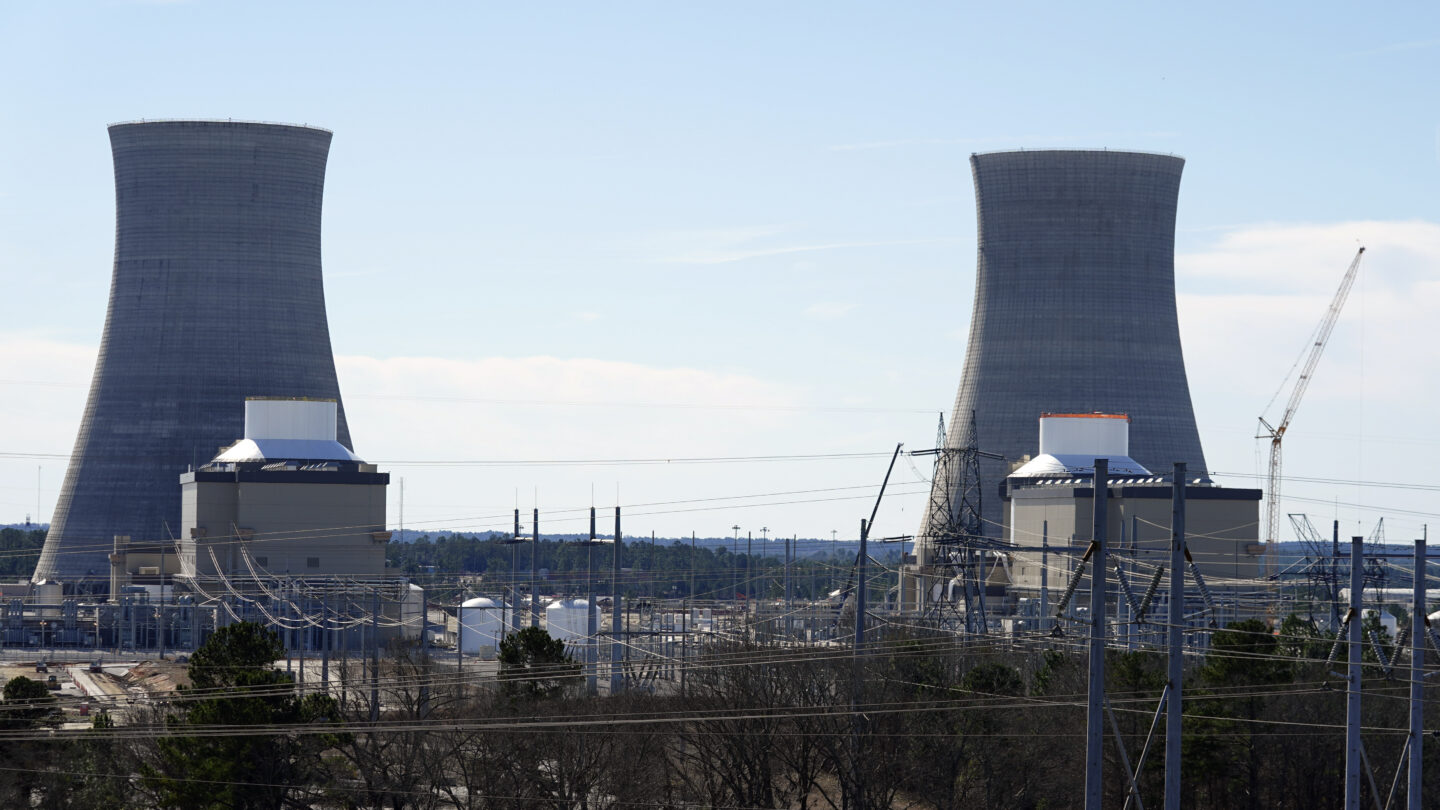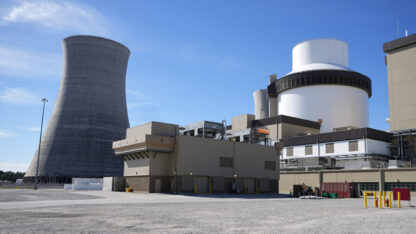Regulators weigh another Georgia Power rate hike

This coverage is made possible through a partnership with WABE and Grist, a nonprofit, independent media organization dedicated to telling stories of climate solutions and a just future.
Georgia regulators are considering Georgia Power’s proposal to raise electricity rates to pay for the two new nuclear reactors at Plant Vogtle. Under a deal the Public Service Commission is considering, monthly bills would increase by just under $9 for the typical residential customer.
During hearings on Monday and Tuesday, Georgia Power officials, commissioners and several public commenters applauded the nearly complete project, which is the first new nuclear power project in the US in decades.
“Plant Vogtle Units Three and Four will provide Georgians with clean, safe, reliable and affordable energy for the next 60 to 80 years,” said Georgia Power CFO Aaron Abramowitz.
He went on to call the proposed agreement on costs “constructive and balanced.”
“The stipulation was negotiated and signed by a diverse group of stakeholders representing the broad-based interests of our customer base,” Abramowitz said.
Other speakers at the hearing sharply criticized the Plant Vogtle project and the commission’s oversight of it, especially the mounting costs and the impact on customer bills.
“So I ask you, at what point is it too much to say yes to Georgia Power?” said Neil Sardana during public comment. “Is there a limit? Is there any question in your mind how much Georgia Power is just automatically granted from us as ratepayers and customers and citizens of the state of Georgia?”
The hearings themselves also drew criticism.
Vogtle watchers long expected a months-long process of testimony, filings and counter-filings to determine which project costs were prudent and reasonable, and therefore could be passed on to customers.
But after Georgia Power, the commission’s Public Interest Advocacy staff and several advocacy groups filed a stipulated agreement in August, the commission scheduled three days of hearings to focus only on that proposed deal. The hearing ultimately lasted one and a half days.
“It is shameful what’s going on down here, how you’ve shortened this hearing process,” Glenn Carroll of Nuclear Watch South told the commission. “You promised us prudency review.”
Patty Durand, who’s running for a seat on the commission, also questioned how the participants in the agreement were even selected.
“Stipulated agreements should involve all interested parties, otherwise, it’s a backroom deal,” Durand said.
She contends that she and some other individuals and groups who have been participating in Vogtle-related meetings and hearings were left in the dark about the negotiations.
Georgia Power’s Abramowitz did not explain upon questioning a method for how stipulated agreement participants were contacted or selected, but said anyone could have reached out to Georgia Power knowing the hearings were coming up.
Witnesses on Monday and Tuesday testified that the project was rife with mismanagement that led to cost overruns. Many of the issues, they said, were predictable.
“Many of the identified risks materialized and were not effectively managed,” said Reza Nikain, a construction advisory consultant brought in by the commission’s staff. “These impacts were compounded by optimistic schedules, productivity and cost forecasts.”
But Nikain also testified that his team’s analysis aligned with the cost breakdown in the stipulated agreement, which passes $7.562 billion on to customers while Georgia Power takes on $2.626 billion.
Durand took the witness stand Tuesday and added a chronological list of instances she believes are evidence of Georgia Power’s mismanagement.
“In 2012, the first rebar was installed incorrectly and had to be redone; In 2013, the first concrete pour resulted in a stop-work order and Nuclear Regulatory Commission with findings of significant breakdown in quality insurance,” Durand said. “The modular parts didn’t work and had to be set up on factories on site and reworked. Vogtle never achieved an integrated project schedule and averaged one day of delay for every day of construction.”
The Public Service Commission is scheduled to vote on the Plant Vogtle cost agreement on Dec. 19. The rate increase, if approved, would begin once Unit Four enters service. That’s expected to happen early next year, according to Georgia Power.
Independent of the proposed increase for Plant Vogtle, Georgia Power’s rates will automatically go up in January under the three-year rate plan the commission approved in 2022.
The utility estimates that will amount to a monthly bill increase of $3.54 for a typical residential customer, a drop from the estimate made a year ago of more than $6. The company attributed the change to lower-than-expected spending, as well as a sharing mechanism that returns money to customers if the company achieves better earnings than expected.
Those two rate increases are in addition to three others that already happened this year.







